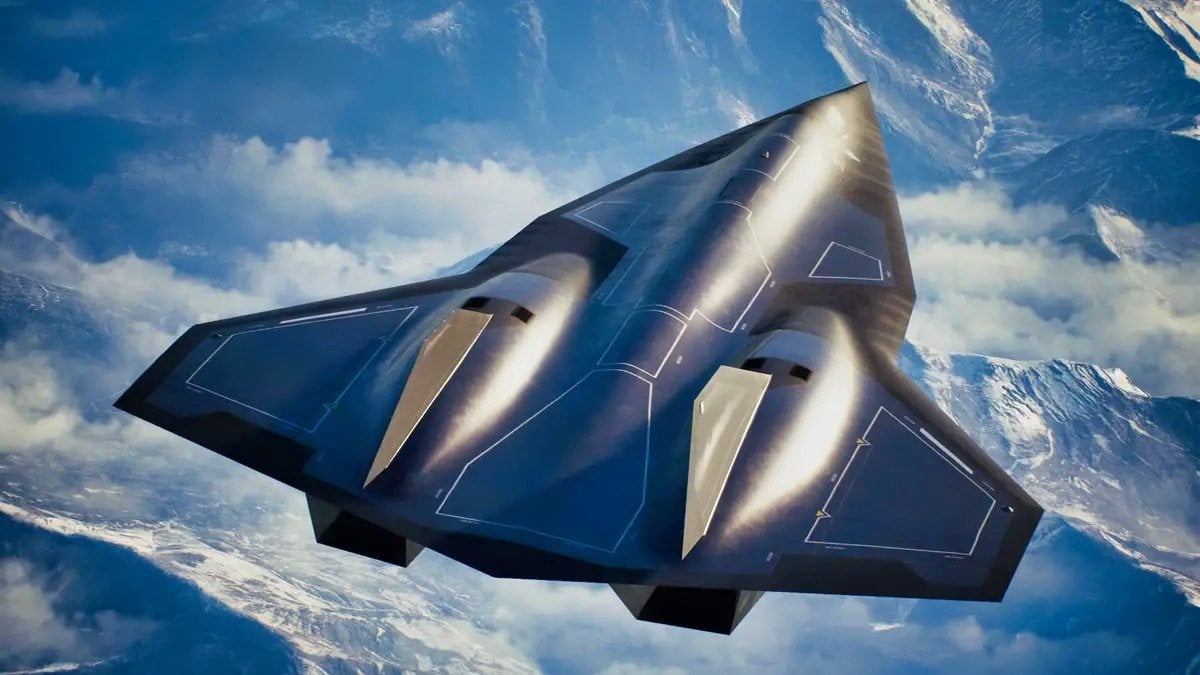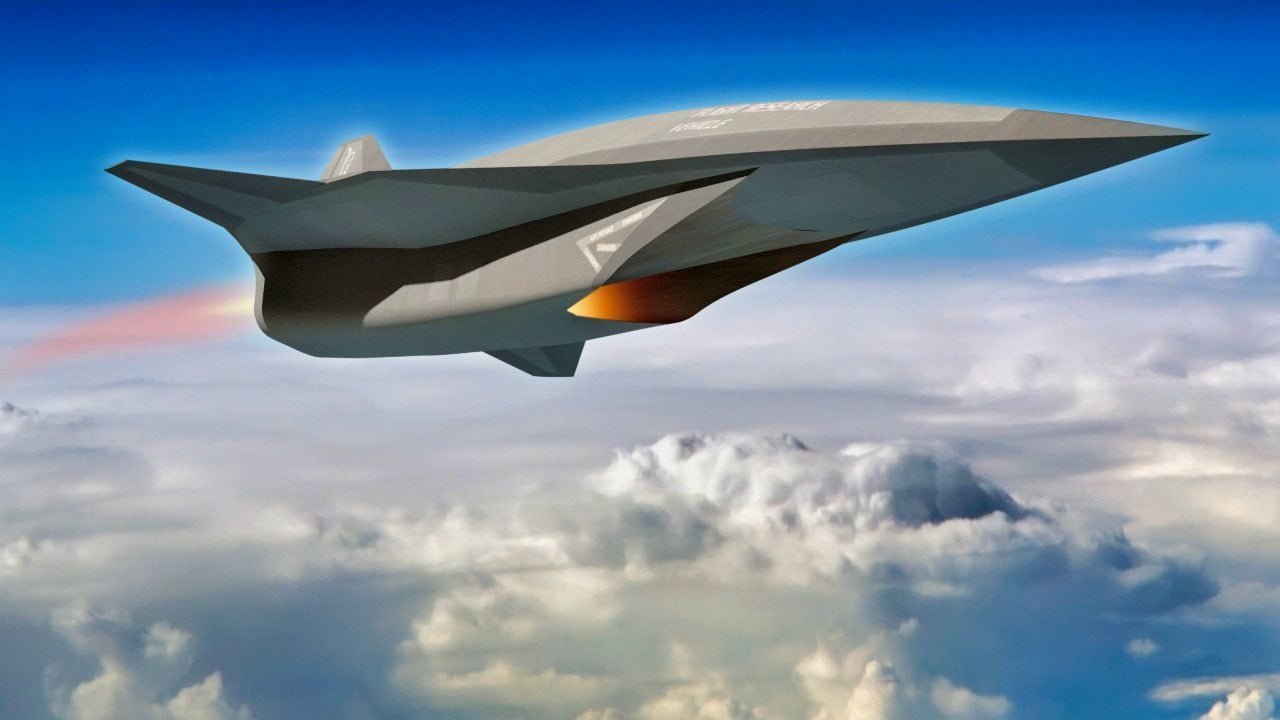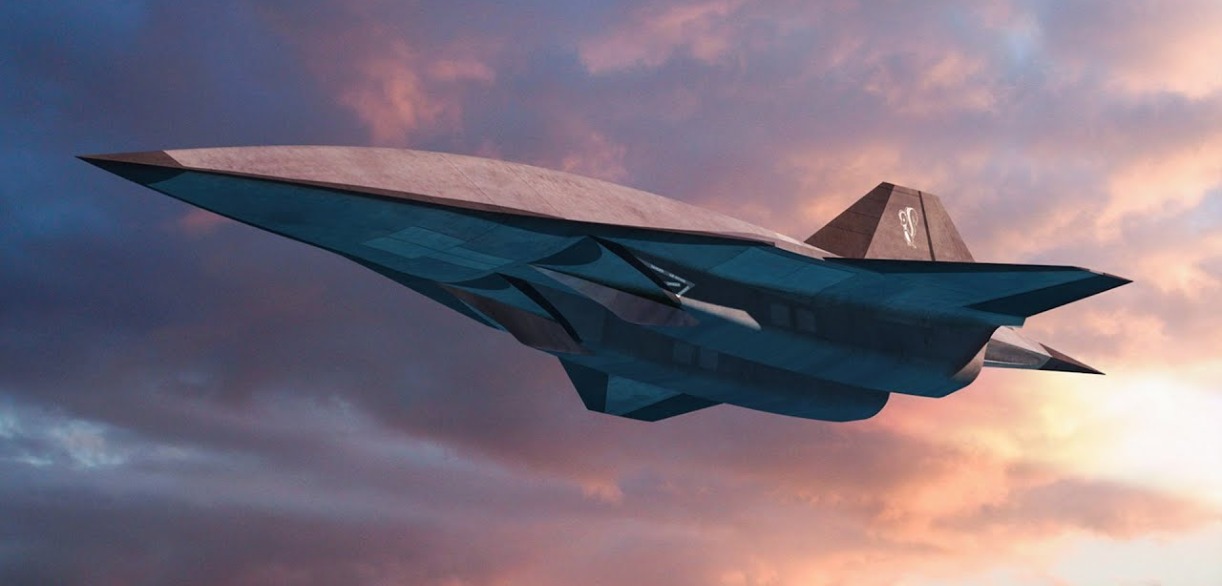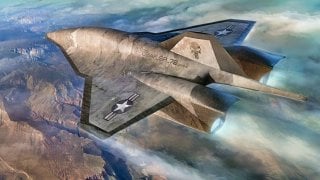SR-72 Darkstar Plane: Could It Really Fly or Hit Mach 6?
The SR-72 "Son of Blackbird" is a planned spy plane capable of reaching Mach 6, developed by Lockheed Martin's Skunk Works.
Summary: The SR-72 "Son of Blackbird" is a planned spy plane capable of reaching Mach 6, developed by Lockheed Martin's Skunk Works.

-While promising unparalleled speed and potential armament with hypersonic missiles, the program faces significant technological and financial hurdles.
-Questions remain about its necessity compared to spy satellites, its ability to evade future defenses, development of advanced materials, and overall cost.
-Despite these challenges, proponents argue for continued investment to fully evaluate its potential.
SR-72: The Future of Hypersonic Reconnaissance Aircraft
By all accounts, the SR-72 Son of Blackbird spy plane will be one impressive aircraft.
With plans for incredible Mach 6 speed, an unmanned option, and the ability to be armed (maybe with hypersonic missiles), the capabilities are exciting. It could get anywhere in the world incredibly fast.
But even with all of these advantages, it’s necessary to examine whether the airplane is even needed. Could it be canceled due to redundancy with spy satellites, technology hurdles, or budget cuts?
What Is the SR-72 Son of Blackbird?
The SR-72 is nicknamed the Son of Blackbird because of its similarity to the SR-71 Blackbird’s prowess in collecting intelligence, surveillance, and reconnaissance data. The SR-71 was retired in 1998.
Both airplanes have been developed by Lockheed Martin’s uber-secret Skunk Works.
SR-72: Many Years in Development
The SR-72 has a long path to fruition even though expectations are that the technology demonstrator could make its first flight in two to four years. It could be another ten years before the Air Force would bring it online in numbers. That means the program would need ample political support from the White House, the Pentagon, and Congress for an extended period.
Can the Technology Advance to Fruition?
Also, the technology must advance beyond what adversaries are developing in anti-aircraft capabilities. Yes, if the Son of Blackbird can fly at Mach 6 (4,100 miles per hour), it can evade air defenses now, but what about in the future?

An enemy hypersonic missile or laser could perhaps take it out of the skies. Adversarial fighter planes could advance in speed as well to catch up to the SR-72.
The SR-72 must also be able to land at a reasonable speed. And how could it take off? The spy plane would likely have to launch from the top of another craft, at least at first. The high speed would generate so much heat that yet-to-be-invented composites of carbon, ceramic, and metal mixes would be needed.
The combined-cycle engine scramjet is still being developed as well and that is a question mark.
More Questions Have Cropped Up
The complete price tag is unknown at this point, but Lockheed Martin admits a precursor drone could cost $1 billion.
It is not known how much the Covid-19 pandemic has set back timelines and milestones – or even what those milestones are in the first place. What is a priority now? The propulsions system or the airframe? Are both being developed concurrently? If so that would require even more time, money, and resources.
Its stealth capabilities are also not clear due to the intense heat that would be generated in flight. This technology would have to be developed in the next ten years as well.
SR-72: Give It a Chance
We just don’t know much about the SR-72 at this point.
The airplane is definitely exciting. Just the Mach 6 capability is enough to greenlight the project. But many questions remain. The budget is up in the air. Political willpower is questionable when you try to predict what will be in fashion in ten years. Spy satellites can gather intelligence in a way that makes the SR-72 redundant unless the Son of Blackbird is armed with its own hypersonic missile.

But let’s give the Son of Blackbird a chance and hold judgment for another two to three years. Give the acquisition program at least the time it needs to fly a technology demonstrator.
Then we will know if the SR-72 has promise and can avoid cancelation.
About the Author
Brent M. Eastwood, Ph.D., is the author of Humans, Machines, and Data: Future Trends in Warfare. He is an Emerging Threats expert and former U.S. Army Infantry officer. You can follow him on Twitter @BMEastwood.
All images are Creative Commons.


